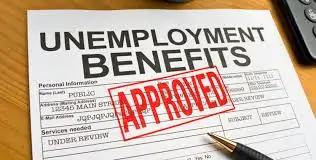State Unemployment Benefits
Eligibility for unemployment insurance, benefit amounts and the length of time benefits are available are determined by state law and vary depending on where you live. Information on eligibility for state unemployment compensation is available on the state unemployment office website for your state.
The unemployment compensation you will receive will depend upon the amount you earned while working. In addition, there are eligibility requirements to qualify for unemployment benefits including working a certain number of weeks.
Regular unemployment benefits are paid for a maximum of 26 weeks, less in some states. In many states, the compensation will be half your earnings, up to a maximum amount. The maximum varies by location.
Federal Unemployment Benefits
There are no federal unemployment benefit programs in effect. Those benefits, known as an unemployment extension, provided additional weeks of unemployment compensation for the long-term unemployed.
Extended unemployment benefits, including Emergency Unemployment Compensation (EUC) and Extended Benefit (EB) programs were available to workers who had exhausted regular state unemployment insurance benefits during periods of high unemployment prior to 2014.
Unemployment Eligibility
In order to receive unemployment compensation, workers must meet the unemployment eligibility requirements for wages earned or time worked during an established (one year) period of time.
In addition, workers must be determined to be unemployed through no fault of their own
Disqualification from Unemployment
The following circumstances may disqualify you from collecting unemployment benefits, depending on state law:
- Quit without good cause
- Fired for misconduct
- Resigned because of illness (check on disability benefits)
- Left to get married
- Self-employed
- Involved in a labor dispute
- Attending school
Unemployment Benefits
- Regular benefits are paid for a maximum of 26 weeks in most states. Some states provide benefits for fewer weeks.
- In many states, the compensation will be half your earnings, up to a maximum amount.
- Benefits are subject to Federal income taxes and must be reported on your Federal income tax return.
When to File
Filing for unemployment should be the first item on your agenda when you’ve been laid off. It might take two or three weeks to collect a check, so the sooner you file, the faster you’ll get paid. A delay in filing will mean a delay in collecting.
How to File for Unemployment
You may be able to file for unemployment online or over the phone. Review the information you will need to open a claim. Then, visit your state unemployment office to determine the best way to open a claim and to get started collecting unemployment.
In general, to file a claim you will need:
-
- Social Security Number
- Alien Registration Card if you’re not a US citizen
- Mailing address including zip code
- Phone number
- Names, addresses and dates of employment for all your past employers for the last two years
Getting Paid
- It generally takes a few weeks after your claim to receive your first unemployment benefit check, direct deposit or debit card. Some states require a one-week waiting period; therefore, the second week claimed is the first week of payment.
- Once your claim is approved, you should be able to file weekly online, by phone or by mail.
Unemployment When You Quit
Can you collect unemployment if you quit your job? It depends. In most cases, if you voluntarily left employment you are not eligible. However, if you left for “good cause” you may be able to collect.
“Good cause” would be determined by the state unemployment office and you will be able to make a case for why you are eligible for benefits. If your claim is denied, you should be entitled to a hearing where you can plead your case.
How to File an Unemployment Appeal
If you have filed an unemployment benefits claim and your claim is turned down or contested by your employer, you have the right to appeal the denial of your unemployment claim. Here’s how to file an unemployment appeal.
State Requirements for Unemployed Workers
Registering with the state job service and actively seeking work is a requirement while collecting unemployment. You must be ready, willing, available, and able to work. The Job Service may require job seekers to apply for jobs, submit resumes, and not turn down a position if it meets certain standards.
Your state Job Service Offices are excellent resources to assist with a job search. Many free services are offered including job listings, career counseling, resume and cover letter writing help, and training. Take advantage of the help they can give you – it will make your job search easier.
How to Contact an Unemployment Office
To find your local unemployment office, and other helpful information, visit the Department of Labor website.
It can be hard to get through to an unemployment office on the phone. Most states want claimants to file online, and it can be difficult to locate a phone number if you have a question or need to talk to a representative about your claim.
However, in some situations, the only way to get a definitive answer or clarification is to talk to an actual person. The FAQ sections of most state unemployment websites don’t cover all circumstances, and unemployment claims can be complicated.
Phone numbers are usually listed in the “Contact Us” section of your state unemployment office website.
A quick and easy way to find a telephone number or email address for your unemployment office is to search Google using your state’s name, unemployment office and phone number. For example, searching Google for “New York unemployment phone” brings me directly to the contact information page for the NYS Department of Labor’s Unemployment Insurance contact page.
If English is not your first language, some states have telephone claims lines in other languages. For examples, California provides separate phone numbers for English, Spanish, Cantonese, Mandarin, and Vietnamese speaking customers. If available, information on alternative phone numbers will also be listed on the contact page for the unemployment office.
You may also be able to contact claims staff by email, but do not send any confidential information in your email message.














It is nice to see about our labour law right now every individuals. Also i have a problem kindly help me plz.kindly send your contact.
Definitely believe that which you said. Your favorite reason seemed to be at the web the simplest factor to be aware of.
I say to you, I definitely get irked even as folks consider concerns that they plainly don’t recognize about.
You managed to hit the nail upon the highest and
outlined out the whole thing with no need side-effects ,
other folks can take a signal. Will likely be again to get
more.
Definitely believe that which you said. Your
favorite reason seemed to be at the web the simplest factor to be aware of.
I say to you, I definitely get irked even as folks consider concerns that they plainly don’t recognize about.
You managed to hit the nail upon the highest and outlined out the whole thing with no need side-effects
, other folks can take a signal. Will likely be again to
get more.
Comments are closed.